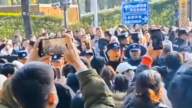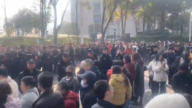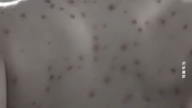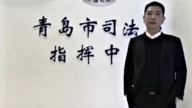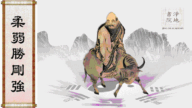【新唐人2013年05月11日讯】近来,中国网路热传美国“白宫有个奥青天”。清华大学学生朱令19年前的铊中毒案,引发大陆民众越洋告洋状热潮,甚至请求“欧巴马出兵解放中国人民”。这一现象引起世界各国媒体记者的关注。有人说这是大陆访民们在万般无奈和绝望中的黑色幽默,但也有人认为这不是绝望而是觉醒,是中国访民们的新出路。那么,美国政府到底会如何做呢?
按照美国相关规定,一个请愿书只要在30天内,签名人数达到10万人,白宫就要进行回复。但朱令案仅用了三天时间,就轻松突破10万人的底线。
这种告洋状的举动和请愿的人数之多,让世界媒体记者目瞪口呆,称之为“旷古奇闻奇景”。
据《美国之音》报导,5月6号,法兰西24电视台网站,报导了这件比天方夜谭还天方夜谭的奇异新闻。5月8号,《美国有线电视》新闻网驻中国记者蒋欣,也从北京发出长篇报导,讲述了朱令案的来龙去脉,和过去一个星期更为离奇的发展。
新疆网友张先生:“很多访民上访时间也不短了,都认识到现在中国社会并不是一个法治国家。现在访民把外媒和白宫作为他们的希望,说明中国访民意识到只有真正的民主、法治社会,才是人民真正的青天,访民的事情、冤情才能通过正常的渠道得到解决。”
中国网民在白宫网站上告洋状,甚至引起了中共中央机关报《人民日报》和《新华社》的关注,分别发文声称要挽回正义、要澄清传闻。不过被网友们回应:有点迟了。
由于中国司法没有独立,不少访民即使跑到北京上访,也难逃被非法截访、关押、虐待等下场。因官官相护,访民普遍被打击报复。告洋状成为访民最后的做法。
时事评论员蓝述:“在过去的二、三十年里面,访民上访方式的变化是非常能说明问题的。从最早的越级上访,最后上访到中央信访办、到高检和高院这么一个模式,到最后不得不改为到外国驻北京的领馆区去上访、去发传单。后来又发展到香港去上访,又发展到联合国去上访,最后终于发展到白宫的网站上‘上访’。”
还有一些访民走投无路时,经常想尽办法把伸冤告状的材料交给国外媒体,请求外国记者能够关心报导他们的冤情。《新唐人电视》在过去几年间曾收到这类的大量投书或来函。
如今,白宫网站因出现大量中国网民的请愿而红火,这是否成为访民们的新出路呢?
蓝述:“这条路看的很清楚,访民越来越走向通过社会舆论来维权的一种维权方式。它说明中国访民对中共官员彻底绝望,对中共司法制度彻底绝望,对中共体制彻底绝望,对中共体制控制之下的所有媒体彻底绝望。这是中国的访民在走了几十年的上访之路后,最后得出来了‘四个绝望’。这‘四个绝望’就导致了他们到白宫的网站上去上访。”
对于中国网民史无前例,跨国寻求司法正义的要求,美国政府会做出怎样的回应﹖目前依然是一个世界之谜。但中国公众和网民这次的举动,被认为是创造了历史。
蓝述:“这次朱令案不会是最后一次,很可能会成为一个开端。以后很可能会有越来越多的中国访民,把自己的案件罗列到白宫的网站上去。我想这是很有意思的现象。”
中国公民的冤情,在自己的国家无法得到正常申诉,新疆的网友张先生认为,这是中共独裁统治下,整个国家的悲哀。但是,他说,现在已经有很多访民意识到这一点,所以这次中国网民在白宫网站上“告洋状”,与其说是绝望,不如说是中国访民的觉醒。
采访/朱智善 编辑/王子琦 后制/孙宁
A New Path to Justice for Chinese Petitioners
Recently, news has spread widely on over China’s
internet about “Judge Obama in the White House.”
Netizens in Mainland China have
brought Zhu Ling’s case abroad.
Zhu Ling, a Tsinghua University student,
was poisoned by thallium, 19 years ago.
Netizens even requested that Obama
send troops to liberate people in China.
This scenario has concerned reporters worldwide.
Some say it is the black humor of
Chinese petitioners driven to despair.
Others believe that this is not despair but awakening,
revealing a new path for Chinese petitioners.
In accordance with relevant provisions of the United States,
as long as a petition can gather 100,000 signatures
within 30 days, the White House needs to respond.
A petition for Zhu Ling’s case gathered
over 100,000 signatures in three days.
This move to go abroad, as well as the number
of petitioners, has stunned reporters worldwide. This is unprecedented.
According to Voice of America reports on May 6,
“France 24 television” website reported this rare news.
On May 8, Jiang Xin, the U.S. Cable News reporter
in China, also sent a lengthy story from Beijing.
It gave details of Zhu Ling’s case, as well as
bizarre developments over the past week.
Netizen, Mr. Zhang from Xinjiang: “Many
of them have petitioned for quite a while.
They recognize that China is not ruled by law.
Petitioners have taken foreign media
and the White House as their hope.
This clearly indicates that only true democracy and
a rule-of-law society will be the people’s real hope.
Then, petitioners’ grievances can
be resolved through a proper channel.”
When the Chinese petition appeared
on the White House website,
it attracted the attention of China’s official newspapers,
People’s Daily and Xinhua News Agency.
These newspapers also published articles,
claiming “restoring justice”, and “clarifying rumors.”
Yet, netizens responded: ‘Sorry, it is a little too late’.
As China’s judicial branch lacks independence,
many petitioners went to Beijing to appeal.
Unfortunately, they have been
detained, arrested and abused.
Because officials protect themselves,
petitioners are generally being retaliated against.
Taking the case to the court overseas
has become petitioners’ last resort.
Lan Shu, political commentator:
“Over the last three decades,
people in China have changed their methods
to petition, which tells us what has really happened.
It evolved from the earliest leapfrog petitions.
These traveled from the central office, the High
Court and the Supreme People’s Procuratorate
to passing flyers in foreign consular districts.
This moved to petitioning in Hong Kong, the
United Nations, and finally to the White House.”
Some petitioners were so desperate that they
passed their complaint materials to foreign media.
They wanted foreign reporters to report their grievances.
A large number of such letters
were delivered to NTD Television.
Today, the White House website has received
numerous petitions from Chinese netizens.
Will this be the Chinese petitioners’ new path?
Lan Shu: “This clearly shows that petitioners are more
likely to choose public opinion to protect their rights.
It also indicates their total despair towards Chinese
officials, the judicial system, the Communist system,
and media under the control of the Communist system.
After decades of petitioning, Chinese people
have finally reached complete despair.
This depair has led them marching on
the path to the White House website.”
Chinese petitioners’ quest for justice abroad
is unprecedented. How will the US react to this?
At the moment, it is still a mystery to the world.
However, Chinese netizens have now made history.
Lan Shu: “Zhu Ling’s case will only be the beginning.
In the future, there may be more Chinese petitioners
revealing their experiences on the White House website.
I think this is a rather interesting phenomenon.”
Netizen Zhang, from Xinjiang, believes it is the sorrow of
one’s own country if citizen’s grievances cannot be aired.
However, many petitioners have realized this.
Chinese petitioners airing requests on the White House
website is not an indication of their desperation.
It is an indication of their awakening.




